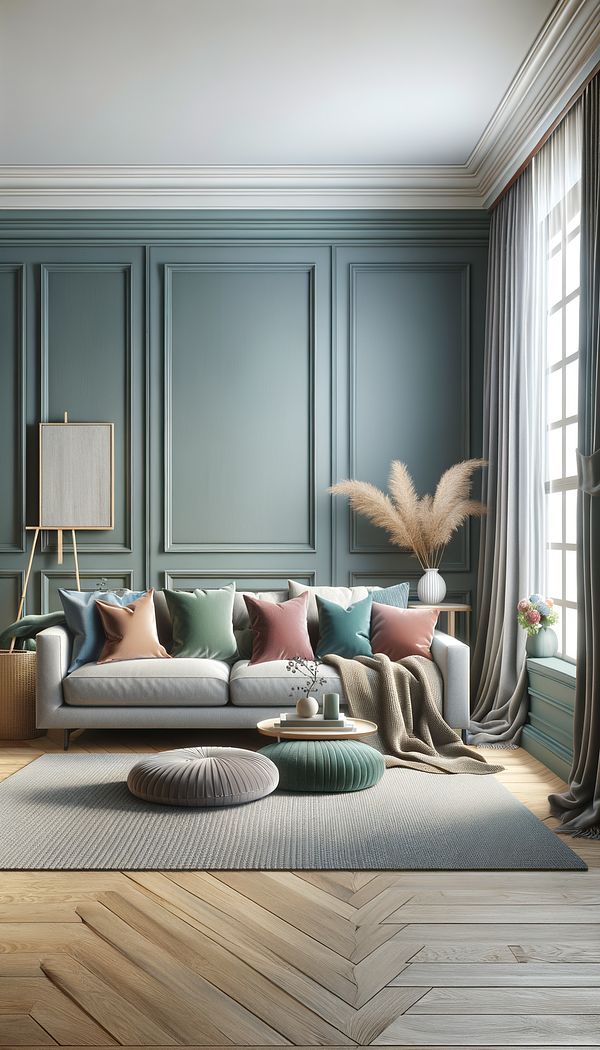What is Muted Colors?
Muted colors are hues that have been dulled or desaturated.
Description
Muted colors are created by either adding gray to a pure color or by toning down the color's intensity, resulting in a softer, less vibrant appearance. These colors often exude a sense of calmness and understated elegance, making them a favorite choice in interior design. Unlike their more saturated counterparts, muted colors are less likely to overwhelm a space and can provide a sophisticated backdrop that allows other design elements to stand out.
The use of muted colors can vary widely, from creating a minimalist aesthetic to complementing a rustic, vintage look. They are particularly effective in spaces where a tranquil and serene atmosphere is desired, such as bedrooms and living rooms. Muted colors can also act as a neutral base, allowing for versatile decorating schemes where the focus can be shifted easily from one accent color to another without requiring a complete overhaul of the room's color palette.
Usage
In a living room, muted colors might be used on the walls to create a soothing backdrop, with accessories and accent pieces in brighter colors to add interest and depth. In a bedroom, a muted palette can help to create a restful environment, with soft shades on the walls, bedding, and curtains.
FAQs
-
How do you create a muted color?
A muted color can be created by adding gray to a pure color, desaturating it, or by mixing the color with its complementary color to reduce its intensity.
-
Can muted colors be used in any room?
Yes, muted colors can be versatile and used in any room. They are especially effective in spaces where a calm, serene atmosphere is desired.
-
Are muted colors the same as pastel colors?
No, muted colors and pastel colors are different. Pastel colors are pale shades of colors made by adding white, while muted colors are made by adding gray or by desaturating the colors.
Practical Application
When working with muted colors, it's important to incorporate a variety of textures to add depth and interest to the space. Since muted colors can sometimes appear flat, textures in the form of rugs, curtains, pillows, and upholstery can introduce visual richness. Additionally, adding a few well-chosen accent pieces in more vibrant or contrasting colors can provide focal points and prevent the space from looking too monochromatic.
-
Space Planning & Layout134 articles
-
Decorating Principles & Elements330 articles
-
Materials & Textiles360 articles
-
Color & Patterns154 articles
-
Textiles & Upholstery252 articles
-
Building PermitA building permit is an official approval issued by local government or regulatory authority for the construction or substantial alteration of a building.
-
SconceA sconce is a wall-mounted light fixture.
-
Boudoir PillowA small, decorative pillow often used for interior decoration.
-
De StijlDe Stijl is an art movement that emphasizes abstraction and simplification.
-
BanquetteA banquette is a long, upholstered bench that is often used in dining areas.
